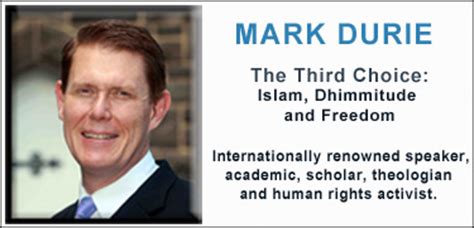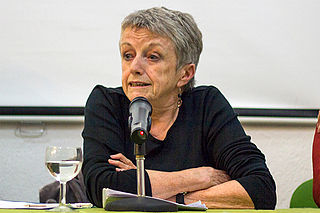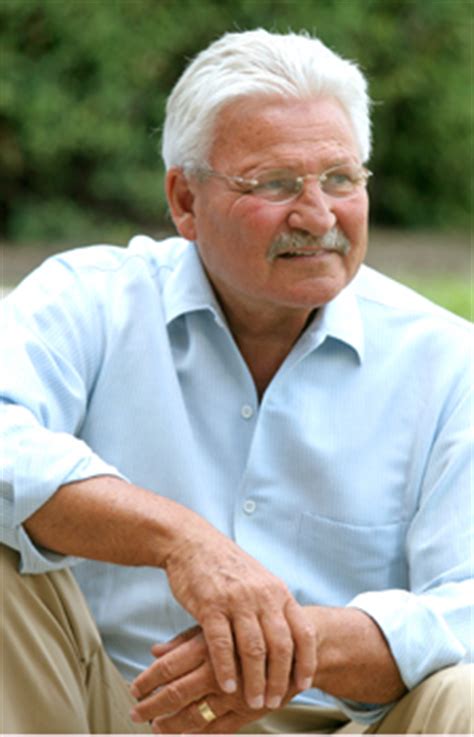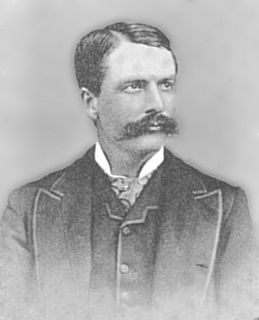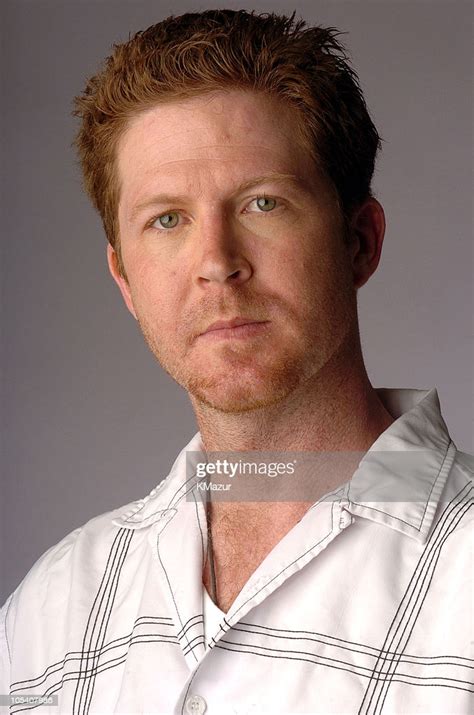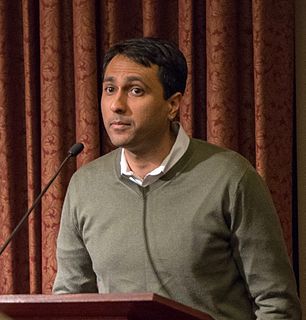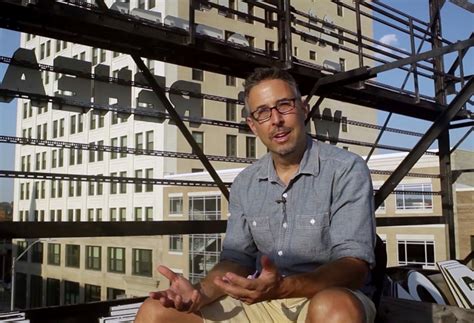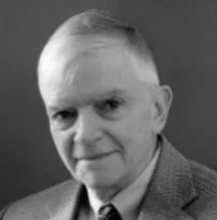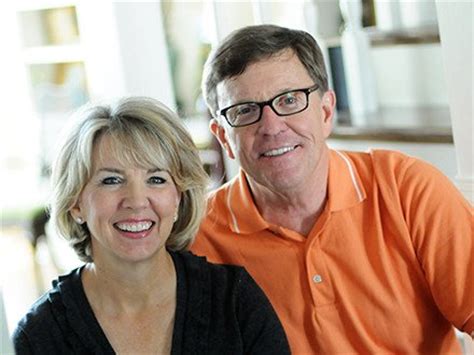Top 649 Engagement Quotes & Sayings - Page 11
Explore popular Engagement quotes.
Last updated on November 17, 2024.
I'm always very grateful for stories about the great coffeehouse wits in Vienna at the turn of the last century. People would wait for a chance to stand near the table where the great wits were trading witticisms as a spectator sport because it was that good. They were that on fire and there was no product. They didn't write anything down. It was just the pleasure of engagement with the moment. I think that's my kind of ideal of how I live.
We raised the matter of an agreement that was reached at the Growth and Development Summit, which was that we should access a certain part, 5% was mentioned, of the funds in the hands of the institutional investors, domestically, for investment in the real economy. That being an agreement of the Growth and Development Summit, we will engage South African business to see how we can make that a practical thing. So, there is a different set of engagement with local business.
We must recognise - both Muslims and non- Muslims, that the Koran is a text. We need human engagement with that text, so we have to understand that the rulings and the legal rulings are produced are channelled through the human mind, it's an interpretive act of a human being engaging and interacting with a text producing legal results. Because of that it's susceptible to flaws, it is not perfect. Nobody has perfect access to the divine will.
If you look at the image [ Portrait of the Artist as a Shadow of His Former Self ], it treads on a kind of popular stereotypical image of the black figure, in both its flatness and slightly comic edge. To take that image as a starting point and to render it in a proto-classical medium, like egg tempera, and then use a repertoire of classical compositional devices to make the picture was a way of setting up an engagement with art history.
The center stone on my ring is the diamond from my mom's original engagement ring. My parents have been married 25 years! My dad bought her a new ring a while back, so she kept her original diamond to pass down to me or my sister someday. It is so special having an heirloom ring because I will get to pass it down one day, too.
You ask why London has to 'stand for' anything. One response is that in fact it always inevitably does. One could say at the moment it stands for a complex mix of multiculturalism and financial power. Interestingly, that is a political mix of progressive and oppressive. What I'm arguing is simply that we should take responsibility for the effects of 'our place' around the world. To take responsibility for our embeddedness. If you don't want to, so be it. It does demand an imaginative engagement with our planetary interdependence and that can be quite challenging.
Religion, if it is genuine, is so profoundly interwoven with individual thought and experience that it is no more exhaustible than consciousness itself. And fiction whose purpose is didactic is bad no matter whether the matter to be "taught" is Christianity or the world view of Ayn Rand. It seems often to be assumed by writers that religion is a pose, meant to deceive oneself or others, or that it is a bad patch on doubt or complexity. This is only convention, however. The writers I know have a much deeper engagement with the real issues of religion.
I was acquainted once with a gallant soldier who assured me that his only measure of courage was this: upon the first fire, in an engagement, he immediately looked upon himself as a dead man. He then bravely fought out the remainder of the day, perfectly regardless of all manner of danger, as becomes a dead man to be. So that all the life or limbs he carried back again to his tent he reckoned as clear gains, or, as he himself expressed it, so much out of the fire.
Ancient worship . . . does truth. All one has to do is to study the ancient liturgies to see that liturgies clearly do truth by their order and in their substance. This is why so many young people today are now adding ancient elements to their worship. . . . This recovery of ancient practices is not the mere restoration of ritual but a deep, profound, and passionate engagement with truth—truth that forms and shapes the spiritual life into a Christlikeness that issues forth in the call to a godly and holy life and into a deep commitment to justice and to the needs of the poor.
I started out with nothing in the world but a kind of passion, a driving desire. I don't know where it came from, and I don't know why - or why I have been so stubborn about it that nothing could deflect me. But this thing between me and my writing is the strongest bond I have ever had - stronger than any bond or any engagement with any human being or with any other work I've ever done.
I spent the first years working in Jordan trying to learn as much as I could about what was taking place in the country, about where there were gaps in the development process that needed attention. Inevitably, there were certain common denominators which are fairly common to all developing societies, perhaps to all societies: that quality education be accessible to everyone, not just a limited elite few; the sustainable conservation of natural resources; the full engagement of women in national development; and the value of cross-cultural exchange and understanding to international relations.
The promotion of human rights cannot be about exhortation alone. At times, it must be coupled with painstaking diplomacy. I know that engagement with repressive regimes lacks the satisfying purity of indignation. But I also know that sanctions without outreach -- condemnation without discussion -- can carry forward only a crippling status quo. No repressive regime can move down a new path unless it has the choice of an open door.
There is a tremendous amount of confusion and denial that exists about mass incarceration today, and that is the biggest barrier to movement building. As long as we remain in denial about this system, movement building will be impossible. Exposing youth in classrooms to the truth about this system and developing their critical capacities will, I believe, open the door to meaningful engagement and collective, inspired action.
The frightening aspect is that it's part of a larger effort from the Pentagon to tear down the wall between public affairs and propaganda, and essentially say there is no difference between information operations, public affairs and psychological operations. They have a new name for that too, it's called Information Engagement. What I hope people take away from this is that it's a window into a larger phenomenon. After a decade of Iraq war you have this Pentagon-military apparatus run amok using resources that they shouldn't be to try to manipulate U.S. public opinion.
I said, I'll put on weight. And I started having massages, taking cod-liver oil, and eating twice as much. But I didn't even gain an ounce. I'd made up my mind that on the day the engagement was announced I'd be fatter, and I didn't gain an ounce. Then I went to Mussoorie, which is a health resort, and I ignored the doctors' instructions; I invented my own regime and gained weight. Just the opposite of what I'd like now. Now I have the problem of keeping slim. Still I manage. I don't know if you realize I'm a determined woman.
After my engagement with Muslim friends, I pray more than I used to pray. My prayer life has been enriched by my encounter with some Muslims, encouraged by their devotion and also enriched by the ways in which they pray. Have I compromised in this way at all? No, to the contrary, I've gone deeper in my faith and I think my love for God has been deepened and made more intelligent in a sense, more rich by that very encounter.
Working-girls, in pairs and groups and swarms, loitered by these windows, choosing their future boudoirs from some resplendent display which included even a man's silk pajamas laid domestically across the bed. They stood in front of the jewelry stores and picked out their engagement rings, and their wedding rings and their platinum wrist watches, and then drifted on to inspect the feather fans and opera cloaks; meanwhile digesting the sandwiches and Sundaes they had eaten for lunch.
No scientist knows the world merely by holding it at arm's length: if we ever managed to build the objectivist wall between the knower and the known, we could know nothing except the wall itself. Science requires an engagement with the world, a live encounter between the knower and the known. That encounter has moments of distance, but it would not be an encounter without moments of intimacy as well. Knowing of any sort is relational, animated by a desire to come into deeper community with what we know.
It would be a wonderful experience to stand there in those enchanted surroundings and hear Shakespeare and Milton and Bunyan read from their noble works. And it might be that they would like to hear me read some of my things. No, it could never be; they would not care for me. They would not know me, they would not understand me, and they would say they had an engagement. But if I could only be there, and walk about and look, and listen, I should be satisfied and not make a noise. My life is fading to its close, and someday I shall know.
Philosophy is not a body of knowledge to impart to someone, that's why reading philosophy books isn't always the best way of learning philosophy. Philosophy is really more the process of rational engagement, rational reflection with a diversity of views and ideas and opinions and trying to sort of reason your way through to a more reflective position. I think if you look at it that way, philosophizing is to some extent some small way a part of almost everyone's lives although they don't recognize it as such and a lot of people are embarrassed about it.
I regret that there aren't more short stories in other magazines. But in a certain way, I think the disappearance of the short-story template from everyone's head can be freeing. Partly because there's no mass market for stories, the form is up for grabs. It can be many, many things. So the anthology is very much intended for students, but I think we're all in the position of writing students now. Very few people are going around with a day-to-day engagement with the short story.
My focus is to push the medium to be what it truly can be. Something well beyond 360-video, which is where a lot of the initial money has gone…but, of course, it’s not real VR if you don’t have agency. So what I’ve been looking for for 25 years is that undiscovered country between gameplay and linear narrative and the emotional engagement of a cinematic narrative. And that takes a huge combination of interesting technological enablements, as well as an understanding of how to bring a multidisciplinary team on a process that is upside-down the traditional process.
The moment you know that this is the person with whom you want to spend the rest of your life, you should start the engagement process. Once you know this, the nature of the relationship changes. You view actions differently, the pressure to have sex increases, and your relationship with others is affected. If you're considering getting engaged, write out the sentence Staying married is hard work fifty times. ...Though I say this with some humor, I think these points bear repeating: Don't underestimate the work involved, but don't panic either.
I'm very pleased this military engagement together with a political road map that we developed, we were able to continue. We want to bring about a political solution there. We worked very closely together [with Barack Obama] on the issue of annexation of Crimea and Russia's attempt to actually conquer Ukraine and actually, they did so, conquer part of the territory. We tried to come to a peaceful settlement here on this.
To conclude this discussion, assessment of justice demands engagement with the 'eyes of mankind',first, because we may variously identify with the others elsewhere and not just with our local community;second, because our choices and actions may affect the lives of others far as well as near;and third,because what they see from their respective perspective of history and geography may help us to overcome our own parochialism.
The rules of engagement around building a brand have changed significantly over the past 10 to 15 years. Where companies at one time could spread their message through traditional marketing, consumers now seek an enduring emotional connection with the companies they patronize. The foundation of that connection is the most important characteristic of building a world-class brand: trust. Trust with your people and trust with your customers.
And across Afghanistan, every single day, Afghan soldiers, Afghan police and ISAF troops are serving shoulder-to-shoulder in some very difficult situations. And our engagement with them, our shoulder-to-shoulder relationship with them, our conduct of operations with them every single day defines the real relationship.
Fact is, the work place to a great extent is "where we live." We need star accountants. Boffo saleswomen. Over-the-top creatives in marketing and new product development. And so on. But, since we're effectively talking about "where we live," good sense and good business and "good" engagement throughout the "supply chain," from vendor's vendor to customer's customer, we would benefit mightily-including on the P & L-if we insisted (!) on: "Pleasant." "Caring." "Engaged."
The challenge CEOs will face three to five years from now is the same one that they face today. That is engagement. It's hard to keep people engaged in what they are doing. As this generation grows up around social media like Twitter where things are 140 characters, how do you keep them engaged all hours every day at work? How do you keep them focused on the big goals you have?
At the same time, eroticism in the home requires active engagement and willful intent. It is an ongoing resistance to the message that marriage is serious, more work than play; and that passion is for teenagers and the immature. We must unpack our ambivalence about pleasure, and challenge our pervasive discomfort with sexuality, particularly in the context of family. Complaining of sexual boredom is easy and conventional. Nurturing eroticism in the home is an act of open defience.
In a nation committed to better living through chemistry - where Viagra-enabled men pursue silicone-contoured women - the national pastime has a problem of illicit chemical enhancement. Steroids threaten the health of the 5 percent to 7 percent of players proved, by a mild regime of scheduled tests, to be using them. Steroids also endanger emulative young people. Further, steroids subvert what baseball is selling - fair competition. And they strike at the pleasure of engagement with America's team sport with the longest history.
Particularly when the war power is invoked to do things to the liberties of people, or to their property or economy that only indirectly affect conduct of the war and do not relate to the engagement of the war itself, the constitutional basis should be scrutinized with care. ... I would not be willing to hold that war powers may be indefinitely prolonged merely by keeping legally alive a state of war that had in fact ended. I cannot accept the argument that war powers last as long as the effects and consequences of war for if so they are permanent -- as permanent as the war debts.
[Seeds Are Small.] Becoming a force of nature doesn't mean that all of our aspirations must be "grand." First steps are often small, and initial visions that focus energy effectively often address immediate problems. What matters is engagement in the service of a larger purpose rather than lofty aspirations that paralyze action. Indeed, it's a dangerous trap to believe that we can pursue onlhy "great visions."
My favorite single line from the Qur?an is from Surah 49:13, which says that God made us different nations and tribes that we may come to know one another, in the sense that diversity is holy and it was created by God. What we humans are meant to do with that diversity is engage in positive interaction with each other and come to know one another ? because knowledge is holy and pluralism or positive engagement is holy.
This conclusion of trade agreements that go beyond the scope of mere tariff agreements, customs agreements, are most important and I'm very pleased we were able to bring this to fruition between Canada and the E.U. We've made great progress, particularly if we look at one of the great global issues, namely climate protection, without the engagement of the current administration under the leadership of Barack Obama, this Paris agreement would never have come about.
I try to write about complex issues--young people in an adult world-- full of irony and contradiction in a narrative style that relies heavily on suspense with a texture rich in emotion and imagery. I take a great deal of satisfaction in using popular forms-- the adventure, the mystery, the thriller-- so as to hold my reader with the sheer pleasure of a good story. At the same time I try to resolve my books with an ambiguity that compels engagement. In short, I want my readers to feel, to think, sometimes to laugh. But most of all I want them to enjoy a good read.
What must be addressed in the most immediate sense is the threat that the emerging police state in the United States poses not to just the young protesters occupying a number of American cities, but also the threat it poses to democracy itself. This threat is being exacerbated as a result of the merging of a war-like mentality and neoliberal mode of discipline and education in which it becomes difficult to reclaim the language of obligation, social responsibility and civic engagement.
Every kingdom work, whether publicly performed or privately endeavored, partakes of the kingdom's imperishable character. Every honest intention, every stumbling word of witness, every resistance of temptation, every motion of repentance, every gesture of concern, every routine engagement, every motion of worship, every struggle towards obedience, every mumbled prayer, everything, literally, which flows out of our faith-relationship with the Ever-Living One, will find its place in the ever-living heavenly order which will dawn at his coming.
Dad himself used to tell a story about one time when Mother went off to fill a lecture engagement and left him in charge at home. When Mother returned, she asked him if everything had run smoothly. Didn't have any trouble except with that one over there,' he replied. 'But a spanking brought him into line.' Mother could handle any crisis without losing her composure. That's not one of ours, dear,' she said. 'He belongs next door.
It takes a disciplined imagination to acknowledge that the less personal savageries of bombs, missiles, artillery and heavy weapons are, to those blown to smithereens, also barbaric. The main horror of what the coalition is doing is not a matter of the occasional soldier who, in the heat of battle, commits a war crime, but the steady destruction rained on cities, villages, the Iraqi people. This violence is wreaked calmly, from a distance, within the rules of engagement. The war itself is the American war crime.
While complying can be an effective strategy for physical survival, it's a lousy one for personal fulfillment. Living a satisfying life requires more than simply meeting the demands of those in control. Yet in our offices and our classrooms we have way too much compliance and way too little engagement. The former might get you through the day, but only the latter will get you through the night.
As an artist who lives here and wants a more sophisticated engagement between local social dynamics and global discourse, it's great to see that reflected via the relationships we've developed with our customers. For some people it's a political act to eat from us three days a week because they recognize they are financially supporting the premise of the project each time they come. 95% of our annual revenue is purely from the public via food sales.
But the consequences of the whole-hearted and uncritical embrace of politics by Christians has been, IN EFFECT, to reduce Christian faith to a political ideology and various Christian denominations and para-church organizations as special interest groups. The political engagement of the various Christian groups is certainly legal, but in ways that are undoubtedly unintended, it has also been counterproductive of the ends to which they aspire.
Our marvelous new information technologies boost our power and opportunities for political engagement, but they can also disempower us by contributing to extreme political mobilization that sometimes overwhelms our institutions. These institutions were designed for rural societies operation at a tiny fraction of today's speed and with a citizenry vastly less capable that today's. It's unclear how they will change to adapt to the new reality, but change they must.
By 18th century standards, they [Great Britain] were the freest, most dynamic, most willing to challenge tradition and authority. They had the highest wages and highest living standard, and probably the most engagement between the populace and the government of any country. Then the United States took those same qualities to the nth degree, and the British were suddenly appeared stodgy and tradition-bound.
Exploring Ecclesiology is true to its subtitle, being both vibrantly evangelical and admirably ecumenical; it is commendable for its depth, breadth, and erudition. Harper and Metzger's sympathetic engagement with Catholic ecclesiology is challenging and reciprocal. I especially appreciate how the authors emphasize and explore the vital connection between ecclesiology and eschatology, something very beneficial to readers seeking to better appreciate how living the Faith in community today relates to the hope of entering fully into Trinitarian communion in the life to come.
Surfing is sensual. It's a real-time engagement with the forces of nature, which happen to be echoes of the past (which after all, is all a wave really is). Briefly we defy gravity and ride the energy of storms from elsewhere. We are intensely alone as we do it and yet completely swallowed by something larger that enforces a sense of perspective and connectedness to the natural world. It's an experience we yearn to repeat so we go searching for it again and again and we spend years sitting in the water waiting for these radiating lines to come in across the event horizon.
No other human relationship can approach the potential for intimacy and oneness than can be found within the context of a marriage commitment. And yet no other relationship can bring with it as many adjustments, difficulties and even hurts. There's no way you can avoid these difficulties; each couple's journey is unique. But there is much you can do to prepare for that journey. An engagement is not just a time of preparation for a wedding, but also preparation for a marriage.
I often notice how students can gain the capacity to use certain critical methodologies through engaging with very different texts - how a graphic novel about gentrification and an anthology about Hurricane Katrina and a journalistic account of war profiteering might all lead to very similar classroom conversations and critical engagement. I'm particularly interested in this when teaching law students who often resist reading interdisciplinary materials or materials they interpret as too theoretical.


